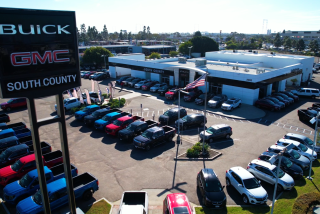Clinton to Say U.S. Autos Making Inroads in Japan
- Share via
WASHINGTON — As the economically and politically sensitive auto agreement with Japan nears its first anniversary, President Clinton will report today that U.S.-made vehicles are surging into Japan and that sales of parts made in the United States are also increasing.
The White House report will cover progress made in gaining access to the potentially lucrative Japanese auto market during the first six months of the agreement, which was negotiated last June and went into effect at the end of August.
The White House will say that Japan is fulfilling nearly every commitment in the pact, said sources close to the report, who spoke on the condition that they not be identified.
The only significant failure the administration will note, the sources said, is the slow growth in Japanese dealerships selling U.S.-made cars and trucks. Japan had said that there would be 200 additional outlets for American vehicles by the end of 1996. So far only 30 have been established.
The report is being released just before a Clinton visit to Tokyo next week. Officials said they hope it will blunt criticism that his efforts to get more U.S.-made goods and services into Japan have stalled in several lower-profile areas, involving photographic film, insurance and semiconductors.
At the same time, the report provides Clinton with ammunition to use in such politically important areas as Detroit and St. Louis, where auto workers cast large numbers of votes. Any documented failure of the agreement would be pounced upon by the president’s Republican opponents.
The White House report tracks closely with the assessment of the American Automobile Manufacturers Assn., which has been looking with optimism, for perhaps the first time, on the prospects of the Big Three auto makers in the tightly controlled Japanese market. Executives of the trade association have worked closely with the administration in monitoring compliance with the pact.
Andrew H. Card Jr., president of the auto makers association and Transportation secretary at the end of the George Bush administration, said in a recent interview that the growth in dealerships was “not fast enough for us.”
Using terminology from grocery marketing, he said: “This is all about shelf space. We know the Japanese consumer is interested in our product, but they’ve got to find it on the shelf.”
Still, sales of U.S. vehicles in Japan are now listed at about 15,000 a month. That is up from an average of 10,200 a month during the first three quarters of 1995. Using a slightly different measuring period, sales in January and February of 1996 are up 36% over those during the same period in 1995.
The administration’s report was prepared in the office of U.S. Trade Representative Mickey Kantor, who negotiated the pact.
Although the report only reviews results of the agreement after six months, White House Press Secretary Mike McCurry made no bones about the president’s interest in drawing attention to what he considers politically positive news.
“The results are really striking,” McCurry said. “We’ve got bragging rights, so we’ll claim them.”
Kantor reached the agreement June 28 in Geneva with Ryutaro Hashimoto, who was then Japan’s trade minister and is now the prime minister. The pact came after months of tense negotiating and under threat of U.S. sanctions that would have curtailed sales of Japan’s most expensive luxury cars in the United States by slapping them with 100% import taxes.
During the negotiations, Japan insisted on avoiding specific targets in foreign purchases, a course that it derided as “managed trade.”
For that reason, much of the agreement was couched in terms of “expectations.” The Clinton administration will report that those expectations, as well as some specific commitments that are not numerical targets, are being met in most of the 52 areas covered.
According to the report, U.S. auto parts manufacturers are reporting new business in Japan as a result of the commitment by Japanese auto companies to increase suppliers’ sales opportunities for original equipment in new cars.
The reduction of regulations in Japan also is opening sales prospects for foreign companies in a $60-billion parts-replacement market for such items as mufflers, shock absorbers and roof racks.
The administration will also report that the burgeoning production of Japanese cars in the United States will expand the market for U.S.-made equipment here. According to the Transportation Department, the North American content of Japanese vehicles made in the U.S. will grow 14% in 1996 over 1995. Such vehicles’ North American content will reach 50% for the first time.






